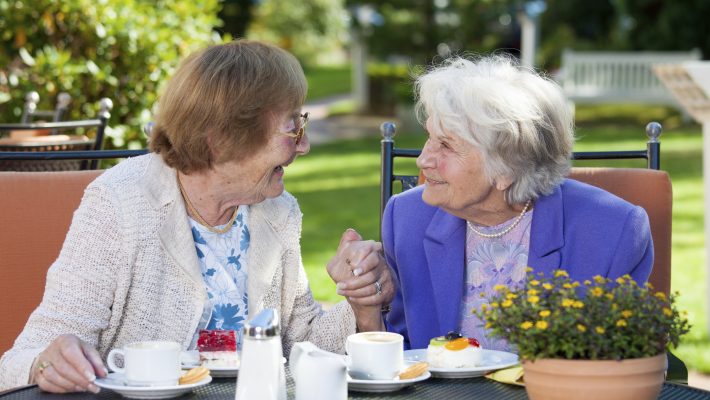
Social interaction helps elderly loved ones to live a healthier life
We are communal beings by nature, designed to connect with people we care about and those who care about us. With more older adults living alone, social isolation is becoming very common. This feeling may be more detrimental to health and overall well being than you realize. A study published in The Journal of Primary Prevention by Nicholas R. Nicholson found that social isolation may increase the risks of depression, higher blood pressure and less physical activity.
The good news: Not all older people who live alone are necessarily lonely, if they stay engaged and enjoy the company of friends. The benefits of frequent social interaction extend beyond emotional health. Staying connected with others may also prolong their physical and cognitive health. Such things as sharing meals a few days a week with friends, or weekly movie nights, may give an older person numerous benefits including:
- A sharper brain
- Lower rates of health decline
- Lower blood pressure
- Potentially reduced risk of diseases such as: Cancer, Osteoporosis. Rheumatoid arthritis Alzheimer’s Disease
Psychology Professor John Cacioppo has identified three primary dimensions of rewarding social relationships.
- Intimate Connectedness: The relationship with a person in your life who you feel affirms who you are.
- Relational Connectedness: Face-to-face contact that is mutually rewarding.
- Collective Connectedness: The association with a group or collective beyond individual existence.
Establishing and maintaining relationships in each of these three areas of social connectedness can reduce feelings of loneliness or isolation.
Baywood Home Care’s in-home care services encourage and provide opportunities for social connectedness. Read from our client testimonials about how our caregivers facilitate and support healthy social interaction levels among our clients.
Additional Sources: University of Rochester Health Encyclopedia, Health Behavior News Service, part of Center for Advancing Health.




